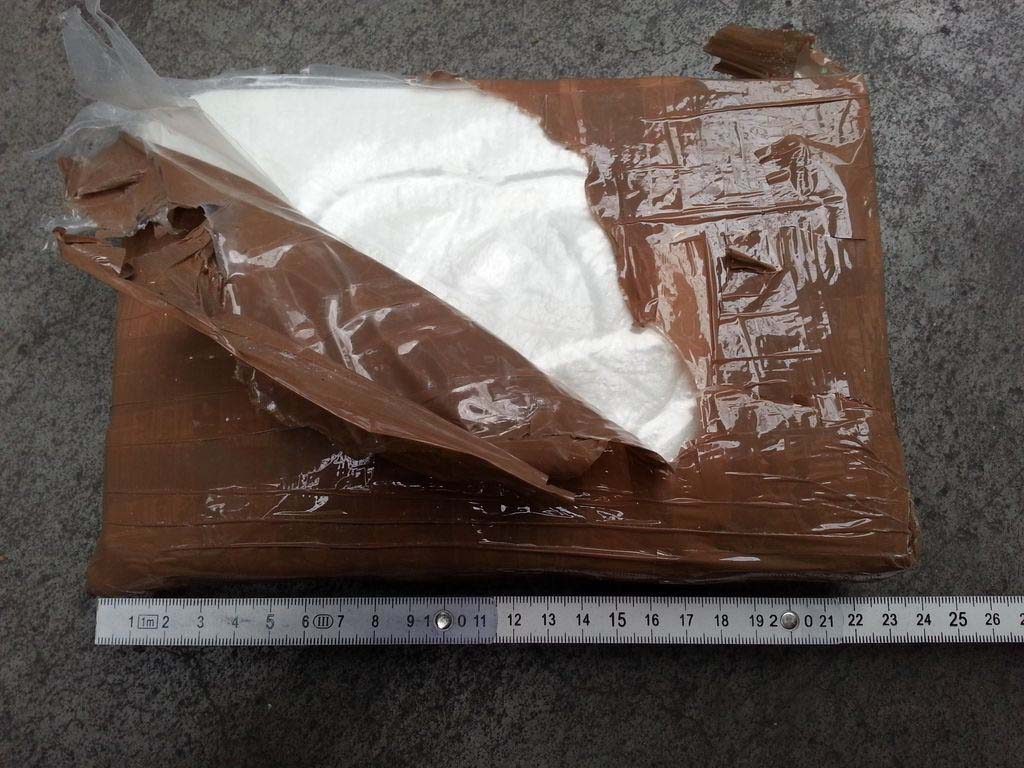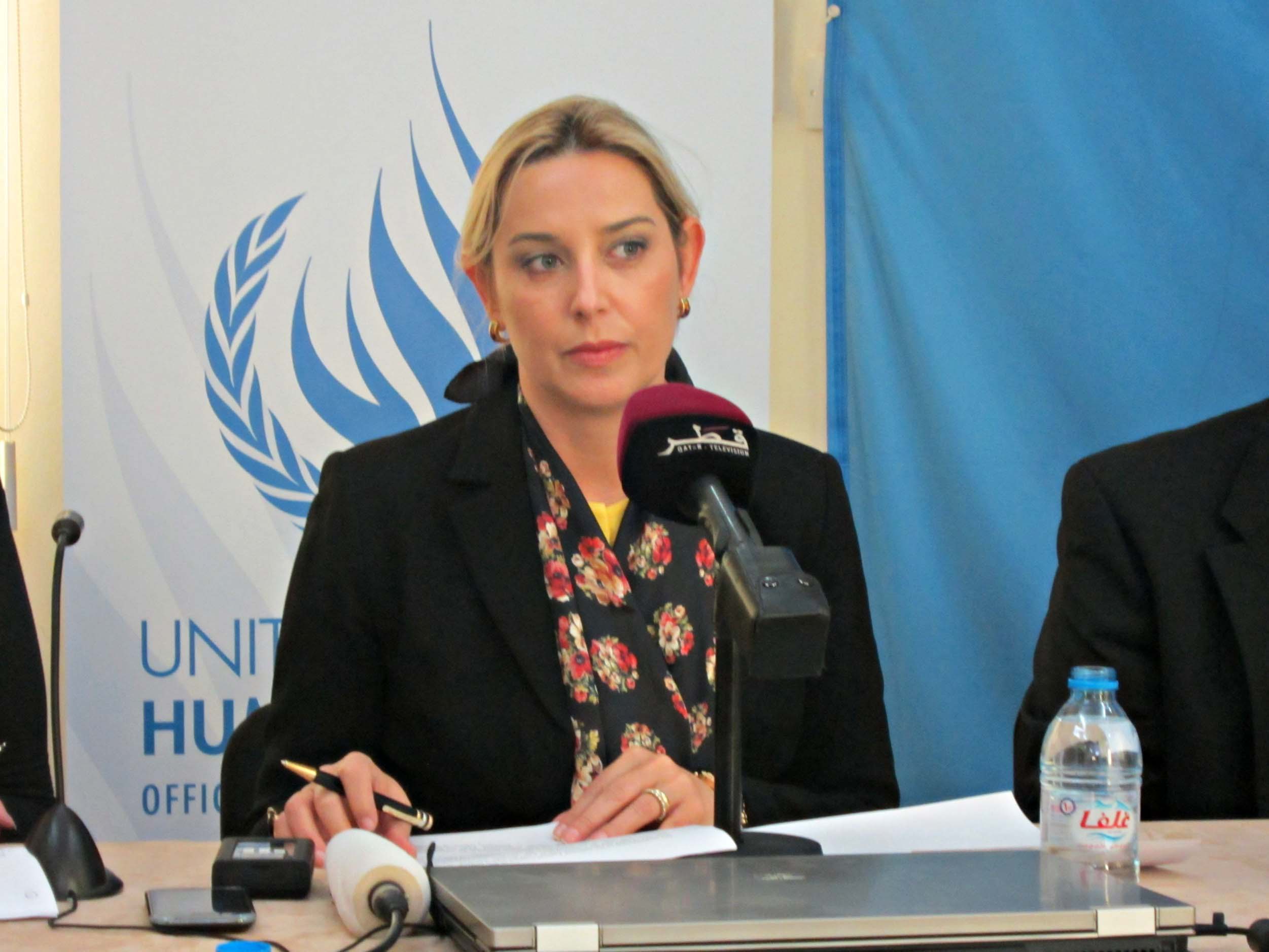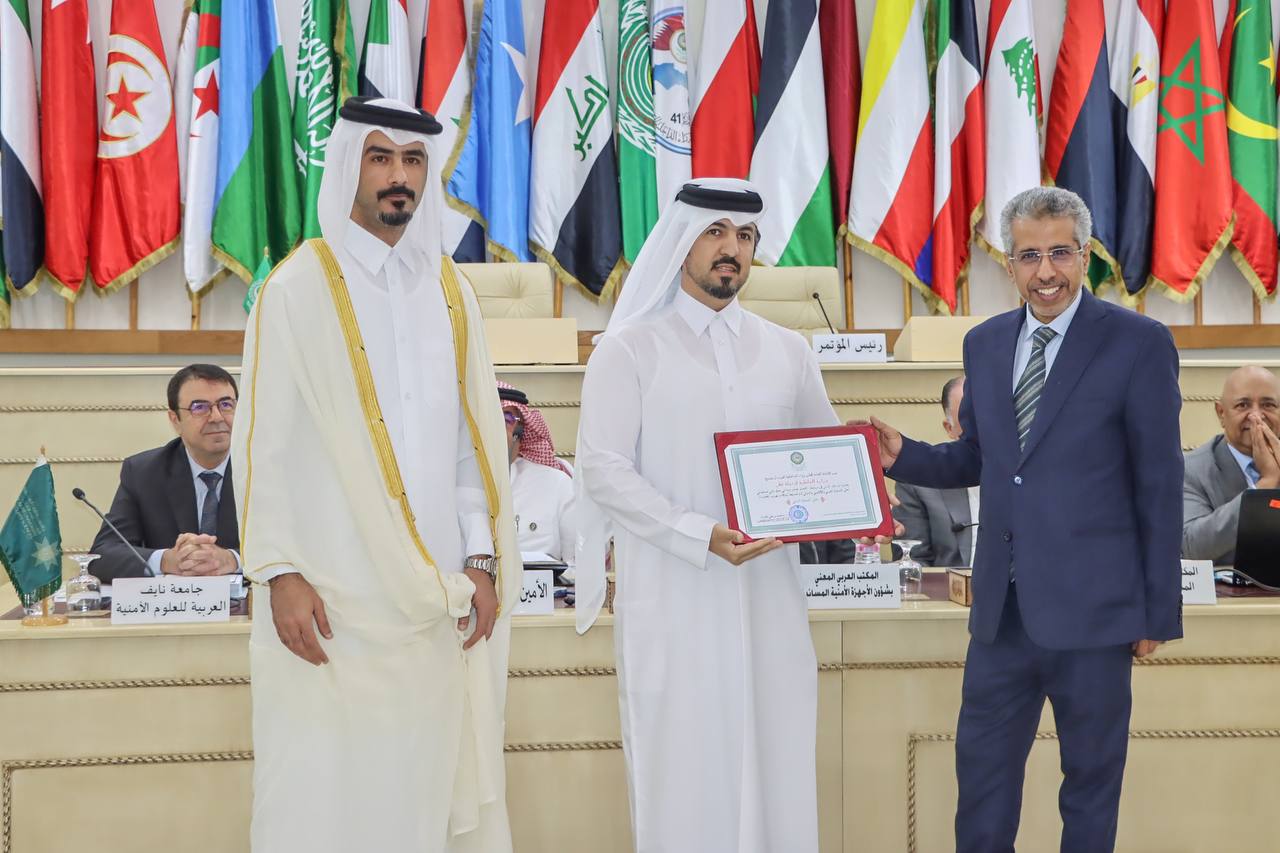
A Colombian woman who initially faced the death penalty for smuggling drugs into Qatar has told Doha News that her incarceration is the result of systematic errors in the country’s judicial system.
Martha Castellano, whose sentence has since been knocked down to 15 years, said a lack of legal help and translation during her arrest, trial and appeal have led to her being unable to challenge her current status.
She said there was no translator when she was arrested and that she had no lawyer to represent her during vital court appearances, despite her right to one.
This caused her to miss opportunities to protest her innocence and argue for a more lenient sentence, she said.

The Colombian woman’s complaints come less than a year after UN special rapporteur Gabriela Knaul issued a report that questioned the Qatari judiciary’s ability to protect the human rights of all residents, particularly foreigners with low incomes.
Castellano, 38, was arrested as part of a sting operation in July 2011 after arriving in Doha on a Qatar Airways flight from Brazil.
She insists that she is innocent and “a victim,” stating that she had been told a package in her baggage that police uncovered to have cocaine was an innocuous gift for a friend of a friend.
Informer
Official documents seen by Doha News state that authorities were given a tip-off by an informant that Castellano would be flying into Qatar with QR3 million worth of cocaine on a flight from São Paulo on July 20, 2011.
The same informant met her at the airport late at night on July 20 and drove her to the Sheraton hotel, where a booking had been made in her name.

There, a First Lieutenant from the Ministry of Interior’s Drugs Enforcement Administration was waiting for her, posing as a buyer for the cocaine. The pair went up to her room.
The court documents state that Castellano took out a pair of beige shorts from her bag that contained 88 cubes – 4kg – of the drug.
The man asked her to inspect the drugs and he said that she broke one of the cubes for him, revealing cocaine inside.
Her side of the story
However, an account written by Castellano and translated into Arabic for submission to the court of appeal tells a very different story.
In it, Castellano claims that she had flown to Qatar to look for work at the suggestion of a Brazilian friend.
Unmarried and with no children of her own, she had become the sole breadwinner for her mother, who was unwell, and her sister’s children.
Her Brazilian friend had said he’d put her in contact with another friend, a Colombian named Jesse who was working as a tour guide in Qatar.
Castellano said that her friend had asked her to bring a gift for Jesse, and that she had agreed to do so.
She states that she was expecting to meet Jesse at the airport, but that he did not arrive, and he did not pick up his phone when she called him.

Instead, another man – a complete stranger – introduced himself to her and drove her to the Sheraton, where Jesse had booked a room for her.
She said that the man followed her to her room and went inside with her. This confused her, so she asked him to call Jesse for her from his mobile and to her surprise, Jesse picked up immediately.
She said that she told him she was angry that he hadn’t met her at the airport, and she asked him to come over immediately and tell the man to leave her room.
Jesse apparently apologized, saying he was busy, and asked her to give his gift to the other man instead.
She then said that she went to the bathroom, and when she came back into the bedroom she saw the man opening up the gift. At this point, the doorbell rang and he went to open it, she said.
She alleges that he ran away, leaving the “gift” behind.
Two police officers then entered the room, and they opened up the “gift” and found “a number of cubes with drugs inside them” covered with a pair of shorts, she said.
Castellano was arrested and taken to a police station. She was remanded into custody, and charged with the importation, possession and trafficking of cocaine with the intention to sell it.
Co-defendants
Two other men, both Lebanese nationals, were also arrested as part of the same sting.
According to the court documents, the second defendant, Zakariya Ali Husayn Khalifa, met another MOI officer posing as a buyer in a separate room at the Sheraton hotel on the same day Castellano arrived in Qatar.
He apparently inspected the money that the MOI had brought for the “deal” – QR3 million in cash – and then told the undercover officer that someone else would be picking up the money.
Ali Husayn Khalifa also apparently offered to supply the officer with drugs.

The other man, third defendant Hasan Abd al-Hasan Jammul, called the undercover officer the next day, saying he was the man who was to receive the money.
Both Khalifa and Jammul then drove to the Sheraton. Khalifa waited in the car while Jammul made his way to a hotel room where he met the supposed “buyer” and took the money.
Both men were arrested, and both admitted that the money was payment for the drugs brought into Qatar by Castellano on the previous day.
The men were initially remanded in custody, but both were later released pending their trial. The court documents do not explain why they were allowed out, while Castellano was not.
A confession
Court documents state that following her arrest, Castellano was questioned by police, and that she gave a full confession “out of her conscious and free will” with a translator present.
They claim she told them that she had previously smuggled drugs into another country without getting caught.
Castellano however claims that there was no translator present when she was questioned, despite speaking no Arabic and almost no English.
She also says she was “deceived” by police and promised some sort of deal that she would be set free if she cooperated and confessed that the drugs were hers.
She asked if she could make a phone call, but was not allowed to do so.
She also says that she only signed a long document in Arabic – which she later discovered was her “confession” – four days after her arrest because she was promised she would be allowed to call her ill mother if she did so.
At this point, she had not yet had any contact with her country’s nearest embassy, which is in Abu Dhabi.
The death penalty
The verdict on Castellano, Khalifa and Jammul’s cases was finally handed down in February 2014, two and a half years after they were arrested.
The lower court decided to sentence Jammul, the “buyer,” to life in jail (15 to 25 years), found Khalifa innocent and sentenced Martha Castellano to death.

Although Qatar has not carried out the death penalty for more than a decade, Castellano genuinely believed she was going to die, according to a fellow inmate who grew close to Castellano in jail.
Speaking to Doha News, this inmate said:
“She told me later that at first (she) felt anger towards everything, she cried a lot and wanted to be alone and was difficult to be around.
But after a few months, with the support of friends and prayers she offered all to God and believes that one day she will go home and see her family.”
It was only after the death sentence verdict that the Colombian Embassy in Abu Dhabi stepped in, sending a representative to see Castellano in prison.
The official promised to study her case and provide her with a lawyer for an appeal.
Sentence reduced
In a series of hearings several months later, Castellano’s lawyer argued at the appeal court that she should be exonerated, or if not, that the court should significantly reduce her sentence.
He stated that the fact that she had no lawyer representing her in the first trial meant that her side of the story had not been properly represented, and that Castellano’s “confession” had been obtained under duress and without a translator.
In her written statement to the court, Castellano argued that the lower court’s death sentence would be a grave mistake if carried out because she was innocent, and because she was the sole provider for her family members, who would be “in danger” if she died.

She said that she had been facing endless difficulties in jail, and that no one was ready to listen to what she had to say to defend herself.
In February 2015, the Court of Appeal upheld her conviction, but ruled that Castellano’s sentence should be reduced to 15 years with deportation afterwards.
Jammul’s appeal was rejected and his sentence was upheld.
A chance missed
Though relieved to escape the death penalty, Martha Castellano was still depressed by the length of her sentence. Even taking into consideration time already spent in jail, she had 10 more years left to serve.
A fellow inmate explained to Doha News:
“She was sad – she cried a lot because she was expecting something else – that they would release her.
I was there when she came back from court. I told her that I know it’s still a long time, but at least it’s a huge change – that there is still hope.”
Castellano knew that she had 60 days after the verdict to lodge a further appeal to try to reduce her sentence, so she requested repeatedly that the prison staff allow her to go to court before the time was up.
Eventually, she did make it to court to attempt to file an appeal herself.
What she didn’t know, however, was that Qatar’s Court of Cassation would only consider an appeal of her sentence if a lawyer lodged it for her.

And the Colombian Embassy would not provide her with a lawyer because her appeal had been concluded.
When this information was disclosed to her when she appeared at court, Castellano said she felt devastated. It was now too late, and her sentence could not be changed.
She also had not been told that there was a legal aid office at the court that could have helped her find a lawyer.
Doha News reporter and translator Riham Sheble was present for her court appearance. She said of Castellano’s reaction:
“She was distraught and crying when it was explained to her. She was completely lost. She called her embassy from my phone after getting permission from the female guard accompanying her, and they told her there was nothing else they could do for her.”
Sheble consulted with a lawyer at the court to try to put Castellano’s mind at ease, but she said that there was very little hope.
“She advised that only an experienced lawyer could hope to convince the court of how disadvantaged Martha had been with all the lack of information, the miscommunication and how no one told her what to do,” Sheble said.
Castellano’s brother has since found a lawyer to represent her, but his fees are QR25,000.
Her brother is still trying to gather the money to fund the appeal of her sentence.
Judiciary report
In June last year, Gabriela Knaul, the UN’s special rapporteur on the independence of judges and lawyers, filed a 22-page report on the Qatari justice system with the UN’s Human Rights Council.
In the report, she states that she had heard of severe shortcomings in the availability and quality of translation services offered to defendants.
“The Special Rapporteur…was alarmed to hear of several cases where non-Arabic speaking defendants were forced to sign documents in Arabic without being provided with a translation. These documents were later used against them in court, and in one of the cases the document turned out to be a confession of guilt.
Several cases where the defendants were not provided with interpretation during court hearings were also reported to the Special Rapporteur. Such obvious violations of due process are unacceptable.”
Knaul also criticized Qatar’s practice of hiring judges on short-term contracts from other Arab countries, and also recommended that more work should be done to improve access to legal help for low-income workers.

She noted in the report that legal aid is available in Qatar for criminal cases when the defendant does not have the financial means to pay for a lawyer, raising questions about why Castellano was not notified that she had a right to an attorney.
Drug trafficking destination
Current penalties for the use, smuggling and dealing of drugs in Qatar range from jail time to the death penalty, in addition to fines of up to QR500,000, according to Law No. 9 for the year 1987.
In recent years, Qatar has been working to foil cross-border smuggling attempts as it becomes an increasingly popular transit point for narcotics trafficking.
Last year, a senior customs official said that Qatari authorities had foiled 317 attempts to smuggle drugs into the country in 2014 – almost one seizure a day.
The government has also installed new devices at Hamad International Airport (HIA) to detect drug smugglers, especially passengers who are drug mules.
Still, attempts to smuggle drugs through and into Qatar have been rising in recent years. Johan Obdola, president of the Vancouver-based International Organization for Security and Intelligence, told the Peninsula in 2013:
“It’s a very small amount that they have seized in Qatar, but we can see from recent activity that Qatar is a new route for drug traffickers from Brazil and Argentina, among other countries, who are using the route to expand their illicit trade in the Gulf region.”
Thoughts?







